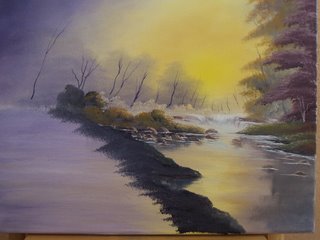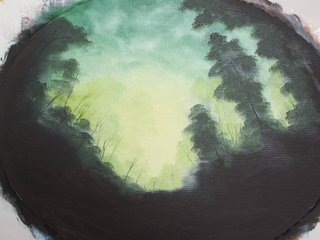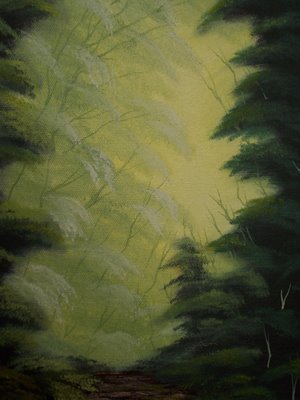
This blog does not provide commentary on the latest issues as published in the mainstream news about the political landscape of our country. However, looking at the reaction of the people from other blogs, I think it is indeed sad and somewhat alarming. Some people will say, why worry about it? Why not just live the good life? Because your country's future is, after all, your own future as well. Anyway, it is good that people are talking and blogging about it because it helps to keep some public figures on their toes. The pen is indeed mightier than the sword, or any other weapon for that matter!
Recently, I was rereading the works of the famous Russian writer who was sent to hard labour camp , Aleksandr Solzhenitsyn, whose words continue to speak to people through the ages especially to our present time. Here, we have a responsible citizen of the former Soviet Union, a Nobel prize winner in literature in 1970, who had set about to write about the suffering of his people and what life was in the extreme condition of hard labour where 20 million people have perished. In his novels, especially One Day In The Life Of Ivan Denisovich and the historical account The Gulag Archipelago, as well as the period of internal exile after his release from camp Cancer Ward, we were given a truthful portrayal of the police state rule which had stripped the population of the most basic of human rights.
And while he was living in the West when he left Russia, we would expect him to recommend the Western system with its free society as a model for a nation that had suppressed her people for decades. However, he had a different opinion. In his acceptance speech for an honorary degree at Harvard University in 1978, he talked, in his usual noble language, about the rights and wrongs of the Western society. For the sake of this blog, I would just pick up a few pointers which I feel are relevant:
The West had utter contempt for justice
The American people had taken their freedom for granted. While he had been living in a nation which was ruled by terror, he saw that the majority of the people in America do not have proper regard for the law, but only the letters of the law. He saw that the people do not have intrinsic moral values, but only care about the legality of the matter. Therefore, it had become the most litigious society in the world, with all its lawsuits and counter lawsuits. All that concerned them is to fight for what is legally theirs. Do we see a similar rising trend here?
The society is guided by money
Living in a capitalistic, democratic society, people follow the values that lead to materialism and commercialism. People are judged not by their hardwork and talent, but by how much they earn. Even the media are not interested in reporting the truth, but thrives on sensationalising an issue so that their paper can sell. He said America does not have the moral will power to lead the world because the people are preoccupied with their materialistic gain.
God continues to be marginalised
Since they have become so much in love with wealth, God is without meaning in the lives of ordinary individuals. Even with the brilliant technological progress in the West, including space exploration, no one could redeem the West from their moral poverty if their people do not believe that there is an intrinsic evil nature in man,which tends to despiritualise and dehumanise a person. Solzhenitsyn believed that in his old Russian culture, which is a God believing culture, and through the extreme sufferings of his people, lay his own salvation. This is one of the reasons, I believe, why he had returned to Russia in 1994, despite being deprived of his citizenship earlier.
The hardships of his people had brought about a spiritual strength that America and other western civilisation cannot compare with.
The full text of his speech can be found here.
Like a tormented prisoner, Solzhenitsyn spoke the truth. Here is an excerpt from his first novel One Day In The Life Of Ivan Denisovich, followed by a few quotes from this living legend.
"Senka was a quiet, luckless fellow. One of his eardrums had been smashed in '41. Then he was captured; he escaped, was recaptured and was sent to Buchenwald. There he evaded death by a miracle and now he was serving his time here quietly. If you show your pride too much, he said, you're lost.
There was truth in that. Better to growl and submit. If you were stubborn, they will break you.
Alyosha sat silent, his face buried in his hands. Praying.
Shukhov ate his bread down to his very fingers, keeping only a little bit of bare crust, the half-moon-shaped top of the loaf - because no spoon is as good for scraping a bowl of porridge clean as a bread crust. He wrapped the crust in his cloth and slipped it into his inside pocket for dinner, buttoned himself up against the cold and prepared for work."
"Do not pursue what is illusory - property and position: all that is gained at the expense of your nerves decade after decade and can be confiscated in one fell night. Live with a steady superiority over life - don't be afraid of misfortune, and do not yearn after happiness; it is after all, all the same: the bitter doesn't last forever, and the sweet never fills the cup to overflowing" - quote
"Violence does not live alone and is not capable of living alone. It is necessarily interwoven with falsehood" - quote
"I am of course confident that I will fulfill my tasks as a writer in all circumstances- from my grave even more successfully and more irrefutably than in my lifetime. No one can bar the road to truth, and to advance its cause I am prepared to accept even death. But may it be that repeated lessons will finally teach us not to stop the writer's pen during his lifetime? At no time has this ennobled our history" - quote


















